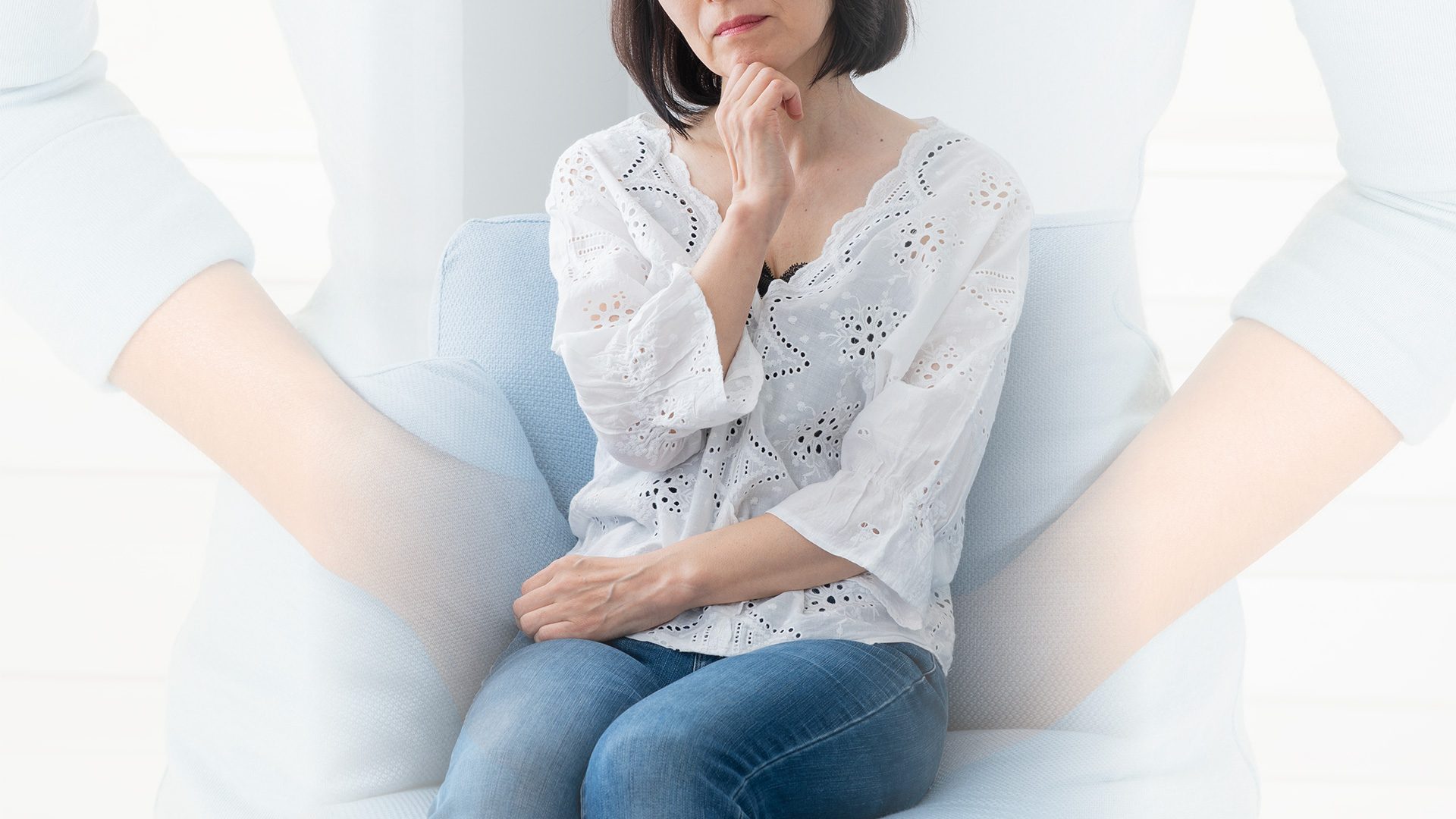SUMMARY
This is AI generated summarization, which may have errors. For context, always refer to the full article.

MANILA, Philippines – “It’s like an illness that has no cure but time,” novelist Maryanne Moll told Rappler in an interview.
Moll has been navigating perimenopause for four years, compounded by polycystic ovary syndrome (PCOS) and hypothyroidism.
For three years, pills prescribed by her gynecologist helped manage the symptoms, but recently, they have resurfaced.
She said the effects can be debilitating, making it difficult to concentrate and accomplish daily tasks.
“I can’t wait for this to be over and I can finally enter menopause!” she exclaimed.
Hot flashes, irregular menstrual cycles, irritability – these are just a few of the signs that women experience as they transition to menopause.
A woman reaches menopause after 12 consecutive months without menstruating.
But before this, she goes through the perimenopause phase, which can last from a few months to several years before menopause.
“At its most severe, menopause can be extremely challenging for women,” said Dr. Lyra Ruth Clemente-Chua of the Women’s Health Care Center, Institute for Women’s Health at The Medical City-Ortigas.
Perimenopause symptoms
Hormonal changes occur in a woman’s body due to aging, but each person may experience a different combination of these symptoms.
When a woman experiences irregular menstruation – assuming her menstrual cycle was previously regular – shorter intervals between periods could be the first indication of perimenopause.
Eventually, the intervals become longer, sometimes stretching to three months.
Another sign of perimenopause is experiencing hot flashes – a sudden feeling of warmth spreading across the face, sometimes from the chest to the neck or nape. This is often accompanied by profuse sweating and can occur even in cold surroundings.
According to Chua, among Asians, body aches, joint pains, and fatigue also signal perimenopause.
In addition, due to the thinning of the vaginal lining, women may experience vaginal dryness, which can make sexual intercourse painful. A woman’s libido may also decline during this time.
Some women experience emotional ups and downs, becoming irritable, hot-headed, and prone to anxiety and depression.
Although some women may stop menstruating completely, this is the minority, according to Chua.
That’s what happened to Maxene (not her real name), who experienced perimenopause at the age of 48 and stopped menstruating at 50.
The longest interval between periods, she said, was 145 days. Although she experienced hot flashes and vaginal dryness, she never felt mood swings or anxiety.
For generations, women have accepted these symptoms as part of the aging process.
But according to Chua, women don’t have to endure these symptoms, especially when they cause severe discomfort and disrupt daily life.
She stressed the importance of a holistic approach to managing menopause, considering a woman’s unique physiology and lifestyle.
“We don’t just rely on medication; we also provide menopausal hormone therapy, which includes addressing relationships,” she said.
Mae Imman (not her real name), 43, started experiencing perimenopause symptoms last year.
She said she had periods of irritability, and intense headaches, and noticed adverse reactions to dairy, which she didn’t have before.
To adapt, she exercises regularly, and prioritizes self-care and quality time with loved ones, engaging in activities they enjoy.
Grace (not her real name), 51, began experiencing symptoms at 49. At times, she would have intervals of four months between her periods.
Last year, when she faced an issue with her internet service provider, she felt extremely emotional for several weeks until it was resolved.
Motivated by a desire to maintain good health, she has gradually transitioned to a mostly plant-based diet.
“As menstruation is a part of womanhood, menopause is also a part of that. I wholeheartedly embrace this new transition,” she said.
Post-menopause
Chua warned about three conditions that can result from menopause:
- Osteoporosis: Low bone mineral density causes brittleness and increases the risk of fractures.
- Cardiovascular disease: Since estrogen, which protects the heart, production stops during menopause, heart conditions may develop.
- Dementia: Menopause also increases the risk of developing Alzheimer’s disease and other forms of dementia.
A 21-year study conducted among elderly people in the United States found that frequently engaging in social dancing (with a partner) reduces the risk of dementia by 76%.
Chua advised women going through the menopause transition to avoid becoming too thin as fat tissues become a source of estrogen. While obesity is not healthy, maintaining a healthy weight is important, she said.
She also said women should prioritize their mental wellness by maintaining contact and spending time with good friends.
Engaging in enjoyable hobbies can also be beneficial, Chua added.
Women at work
Speaking about menstruation, Chua couldn’t help but share her opinion on menstrual leave. She does not support it as she pointed out that dysmenorrhea should not be considered a normal part of a woman’s menstrual cycle.
“Women should not accept it as a normal part of their lives,” she said.
She advised women who experience dysmenorrhea to consult their gynecologists to identify the underlying issue and address it promptly.
For employers with women going through the menopause transition, Chua encouraged organizing regular fora where employees can learn more about menopause, emphasizing that women do not have to simply endure the symptoms.
She said all women will experience menopause at some point in their lives, and each woman’s experience is unique.
Chua advised women: “Do not feel ashamed or embarrassed about being in menopause because it will happen regardless of what you do.”
She encouraged women to increase their awareness of menopause instead and prioritize their health before and throughout the menopause journey. – Rappler.com
Mari-An Santos is an Aries Rufo Journalism fellow.
Add a comment
How does this make you feel?
There are no comments yet. Add your comment to start the conversation.